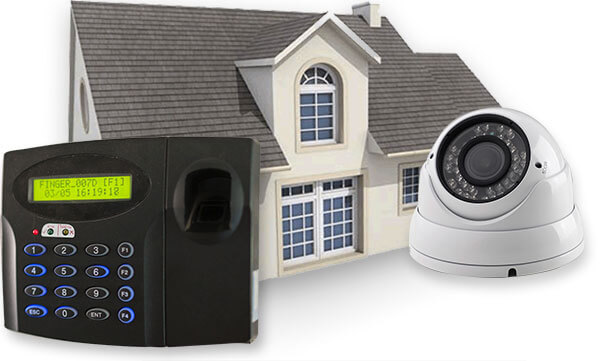What matters most?
Cost
For many people, the price of a home security system is one of the most important factors in deciding which alarm system to purchase. There are three basic elements to consider: upfront (installation) costs, ongoing (monthly) subscription costs, and equipment costs. Be aware that many home insurance providers offer discounts (up to 20%) for homes with monitored alarm systems.
- Upfront cost: Installation is either professional or do-it-yourself (DIY): some companies let you choose an installation method, while others offer only one option. Professional installation costs can run $100-$500+, while DIY is free but requires time investment.
- Subscription cost: Subscription security systems – home alarms monitored 24/7 by outside companies – carry a monthly fee, usually in the $20-$60 range.
- Equipment cost: You’ll catch a price break on monitored systems, which often offer equipment at reduced cost in exchange for signing a contract. If you purchase a system outright, expect to pay $100+ for a basic system and $500+ for top-of-the-line equipment.
Contract
Many home security companies offer discounted equipment in exchange for a signed contract, similar to how your cell phone company offers low-cost phones. Some contracts are more flexible than others, so read through the contract terms (and online reviews) before signing on the dotted line.
- Length: Most contracts are for 2-3 year terms. Many allow for cancellation within the first 2-4 weeks of the contract’s term.
- Terms: Pay special attention to a contract’s fine print: equipment warranties, cancellation clauses, etc.
- Portability: Many companies make it easy to port your equipment to a new home, so if there’s a chance you’ll move during your contract, check first to confirm relocation possibilities.
Installation
There are two basic installation possibilities: professional installation and DIY options.
- Professional installation: Many complex alarm systems, usually those that are hardwired into a home, require professional installation. This usually carries a hefty cost ($200-$500+), although some companies offer discount installation.
- DIY: Do-it-yourself security systems are generally easy to install, often requiring just a few hours to read through the manual and place your sensors.
- Third-party professional installation: If you purchase a DIY system but aren’t a DIYer, you can hire a local handy person to do your installation at an hourly rate.
Monitoring
Home alarm companies offer monthly monitoring via three types of connection: Internet (broadband/VOIP), phone line, or cellular service. Usually, Internet monitoring is the least expensive option, while cellular monitoring is the most expensive.
- Internet: Monitoring via Internet is inexpensive, but be aware that if you have an Internet outage (or a power outage that disables your modem), you will be cut off from monitoring.
- Phone line: Use your home phone line (landline) to connect with your monitoring company. Be aware that if a burglar cuts your phone line, your system will not work.
- Cellular: Monitoring via cell phone connection is the most expensive option, but also the most secure.
Add-on features
Basic systems are just that: basic. You’ll most likely want to expand your system to meet your home’s specifications – number of windows and doors, outdoor lighting requirements, etc. – so look for a company with the add-on equipment and features that suit your needs.
- Equipment: Equipment offerings vary greatly by company, so choose wisely before signing a contract.
- Monthly plans: Monthly plans can range from bargain-basement monitoring via Internet connection to all the bells and whistles, including smoke detection, medical monitoring and home automation.
- Service upgrades & downgrades: Lifestyle changes may require variations in your security needs; check with your company about the ease of adding services or switching monthly plans mid-contract.
Home automation
Home automation is a very popular feature of today’s home security systems – but one you’ll pay extra to access. Automation affords peace of mind and also keeps your house running efficiently (and inexpensively).
- Security automation: Easily check that your alarm system is armed, your security cameras are functioning, your doors are locked, and other security features are engaged.
- Energy savings: Adjust your thermostat while you’re out, double-check that your lights are off, conserve energy by pulling your shades down, and more.
- Monitor the kids: Unlock the door for your children (or pet-sitter), check that the kids got home safely from school, and even ensure that they’re doing their homework instead of watching TV.
Remote access
Many security companies today offer remote access to the system via web-based dashboards and mobile apps. You can use the app to monitor your alarm or manage an array of home automation functions.
- Internet dashboard: Log into your company’s website, e.g. mysecuritycompany.com, to have one-click access to your system.
- Smartphone apps: Monitor your home via a free smartphone app.
- Tablet apps: Many companies also offer comprehensive tablet-optimized apps to access remote security settings.
![]()
If you would like liquidvideotechnologies.com to discuss developing your Home Security System, Networking, Access Control, Fire, IT consultant or PCI Compliance, please do not hesitate to call us at 864-859-9848 or you can email us at deveren@liquidvideotechnologies.com


Recent Comments